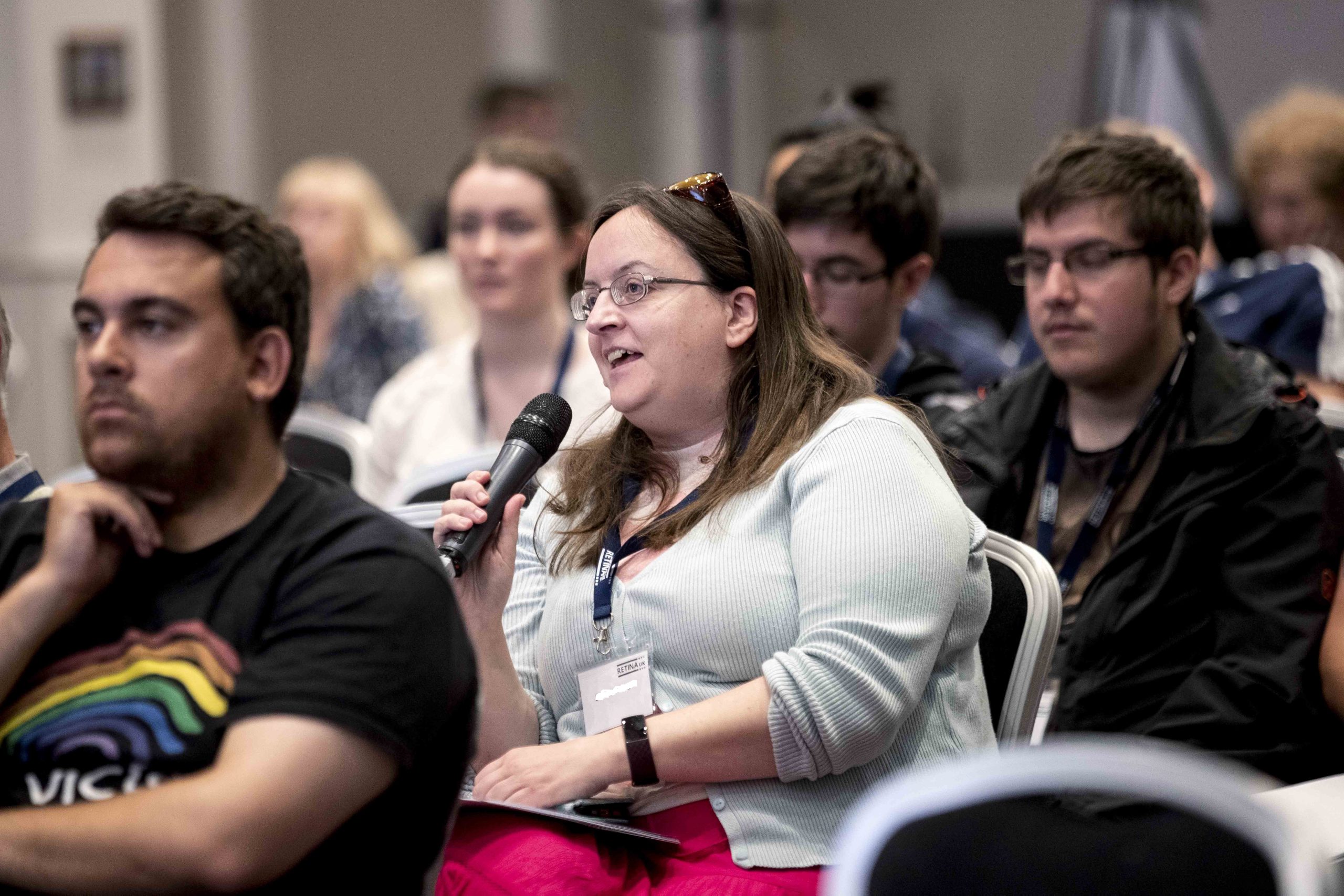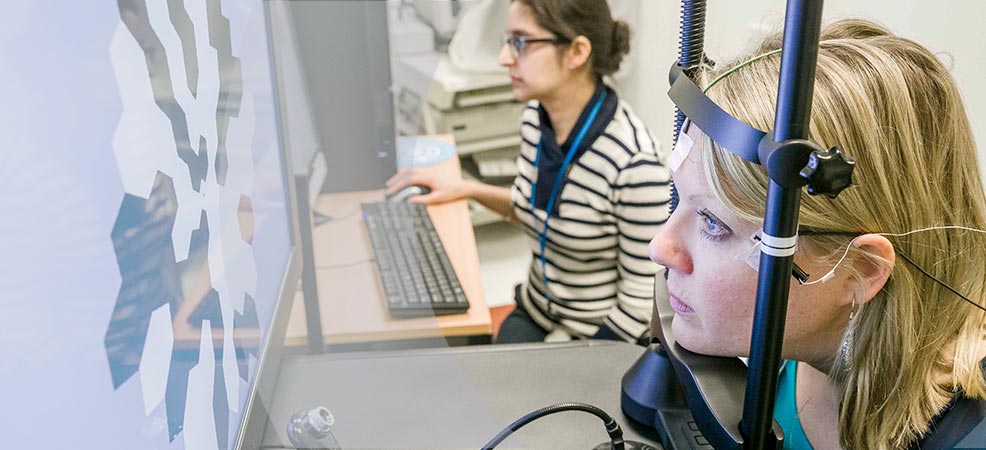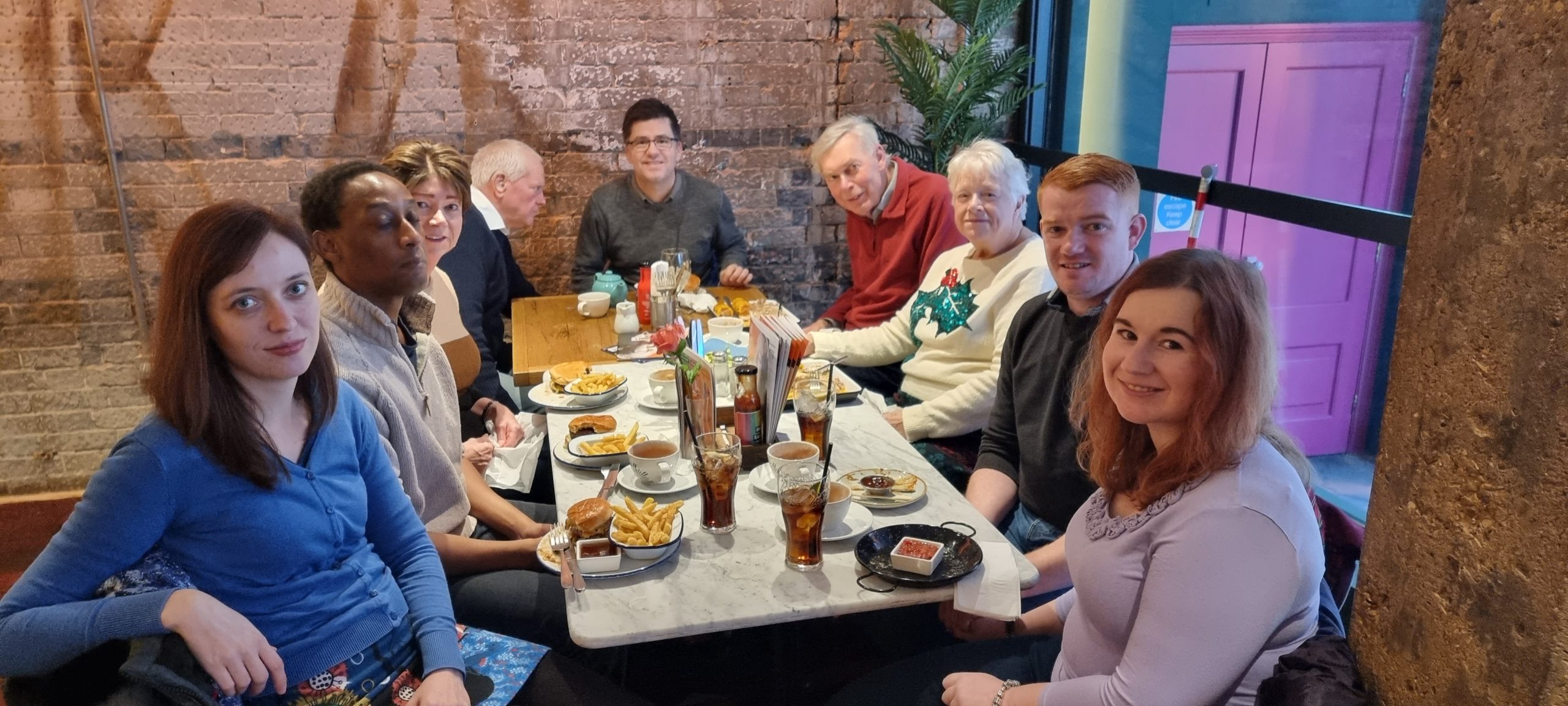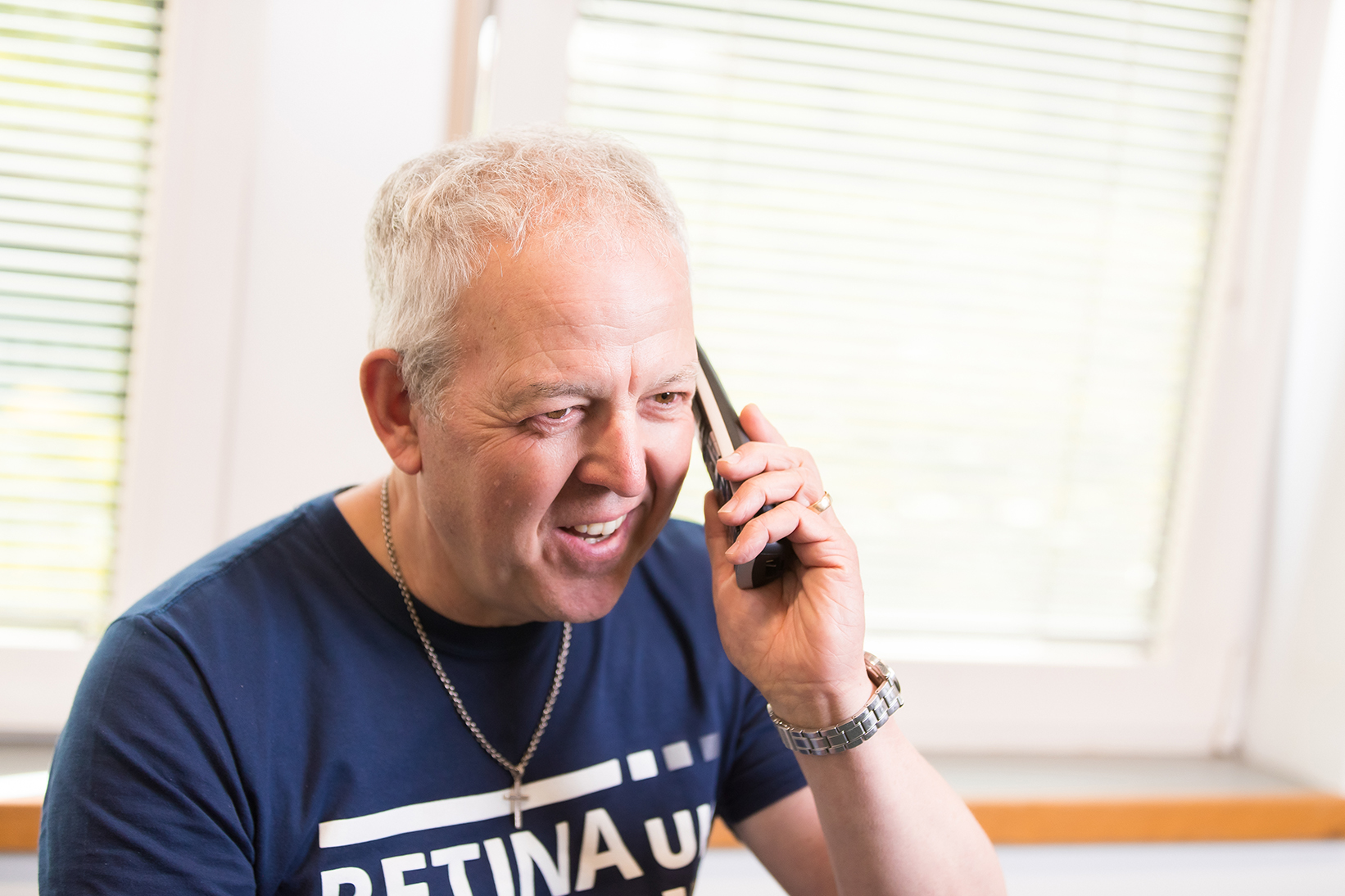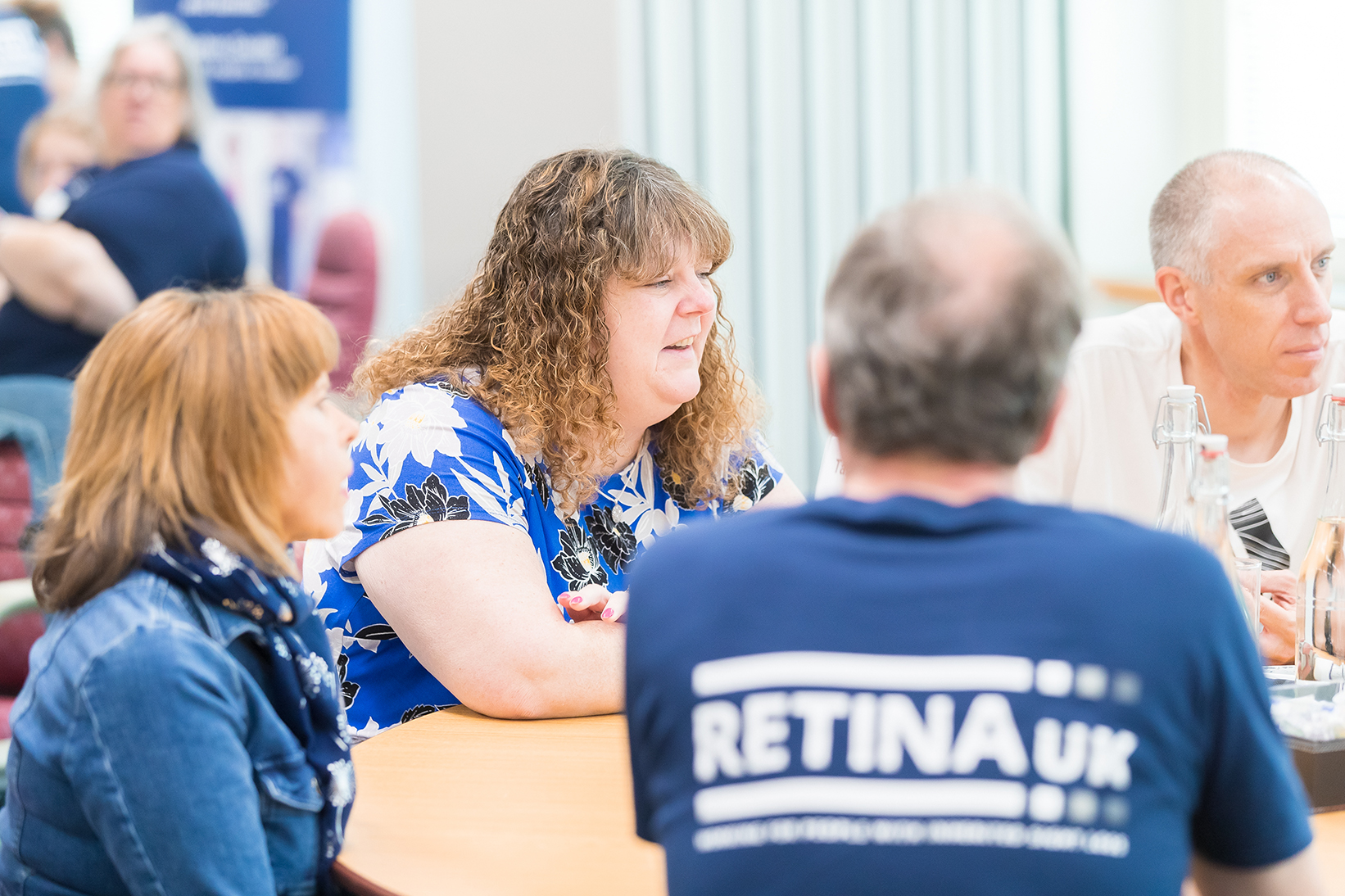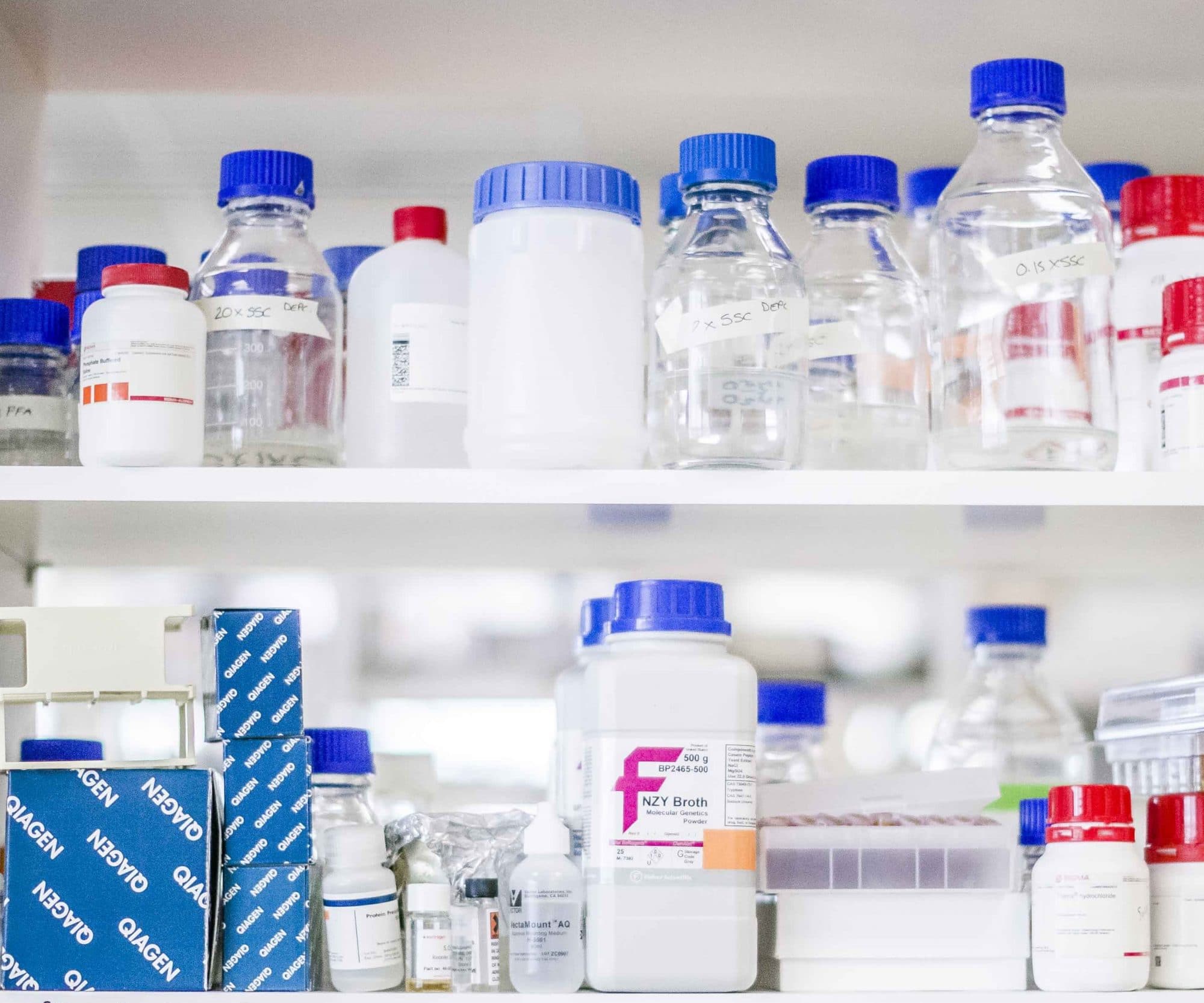Progressive vision loss is caused by the death of photoreceptor cells in the central portion of the retina called the macula.
Symptoms
The first symptoms of Stargardt disease are usually noticed in childhood or early adulthood. These include difficulty reading and other problems with central vision; blind spots can occur, and these may increase in size over time.
Both eyes are usually affected in a similar manner and colour vision may be affected in the later stages of disease. The rate of progression and degree of visual loss can vary from person to person and even among affected members of the same family. It is therefore very difficult to predict what an individual’s vision will be like at a specific time in the future.
Cause
The majority of people with Stargardt disease have mutations in the ABCA4 gene and the condition is usually inherited in an autosomal recessive manner. Find out more at RetinaUK.org.uk/genetics/inheritance-patterns.
Faults in ABCA4 can lead to the build-up of a toxic waste product known as lipofuscin in the retinal pigment epithelium (RPE), which sits just behind the photoreceptors. This eventually leads to the death of cells in the central retina.
Rarely, Stargardt disease is caused by mutations in the ELOVL4 gene, which lead to the formation of ELOVL4 protein clumps that build up and interfere with retinal cell functions, ultimately leading to degeneration.
Treatment
At present, there are no effective treatments for Stargardt disease but various approaches are being explored. Some of these are specific to certain genetic faults; it is important that people with Stargardt disease are offered genetic testing so that they can access future treatments and clinical trial participation. Find out more about genetic testing at RetinaUK.org.uk/genetics/genetic-testing.
PhD students funded by Retina UK has been investigating the efficiency of gene editing approaches to treating Stargardt disease. This involves using a molecular snipping tool to cut out the faulty genetic code and replace it with correct code. This work is still at the laboratory stage. For more information see RetinaUK.org.uk/medical-research/research-we-fund.
Meanwhile, researchers at Southampton University are involved in an EU-funded clinical trial of a new drug called remofuscin that aims to remove toxic lipofuscin from the retina and therefore prevent further damage (this trial is not currently recruiting participants). Other research groups are also investigating drugs designed to counter the build up of lipofuscin.
Clinical trials
For information on how to find out about clinical trials visit RetinaUK.org.uk/medical-research/joining-the-research-effort. If you are considering joining a trial always discuss it with your usual ophthalmologist or family doctor first. Participation in a genuine clinical trial will never require payment.
You can also read about possible treatment approaches for retinal disease at RetinaUK.org.uk/medical-research/approaches-to-treatment and the latest news about research at RetinaUK.org.uk/research-news.
In terms of day to day management, bright light can increase the accumulation of toxic lipofuscin in the retina so it is recommended that people living with Stargardt disease use good quality sunglasses when in direct sunlight. Taking extra vitamin A, such as in a vitamin supplement, has a negative effect on the condition and should be avoided.
For support
The Retina UK Helpline provides information, support and signposting for people affected by inherited sight loss as well as healthcare and education professionals.
Contact 0300 111 4000 (9.00am – 5.00pm Monday to Friday and Tuesday and Thursday evenings 5.00pm – 8.00pm) or email [email protected].
Condition-specific information
Gene Vision gene.vision/knowledge-base/stargardt-disease-for-patients. Retina UK joint funded Gene Vision and input into accessibility and content.
Getting involved in research
Those who join the Retina UK Lived Experience Panel receive an email from us when we are made aware of participation opportunities such as focus groups, surveys and research projects. Sign up at RetinaUK.org.uk/get-involved/lived-experience.


